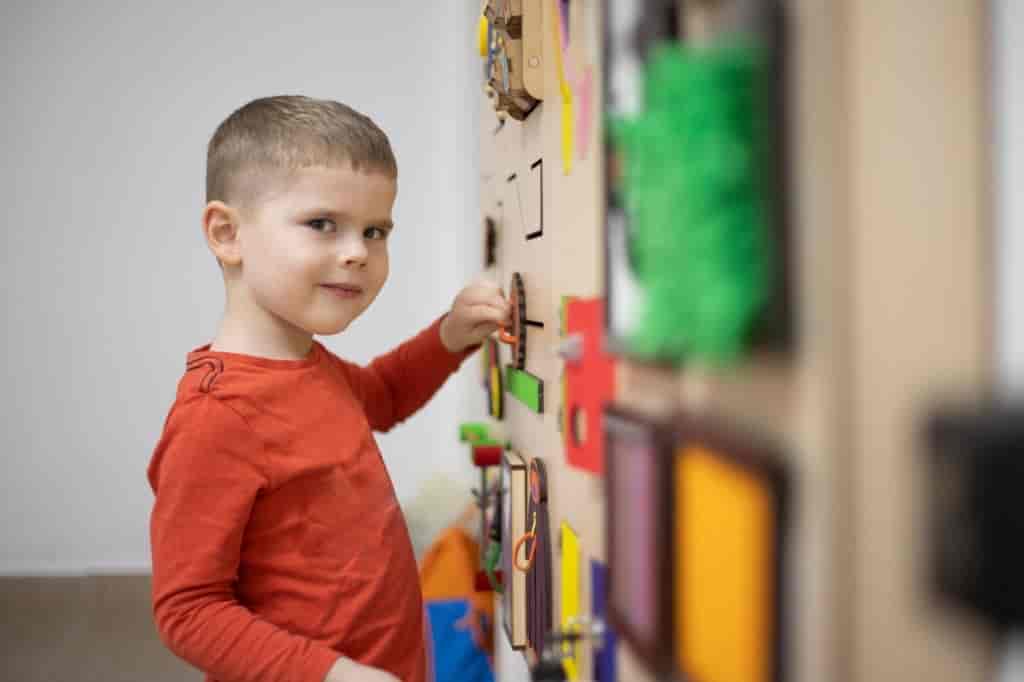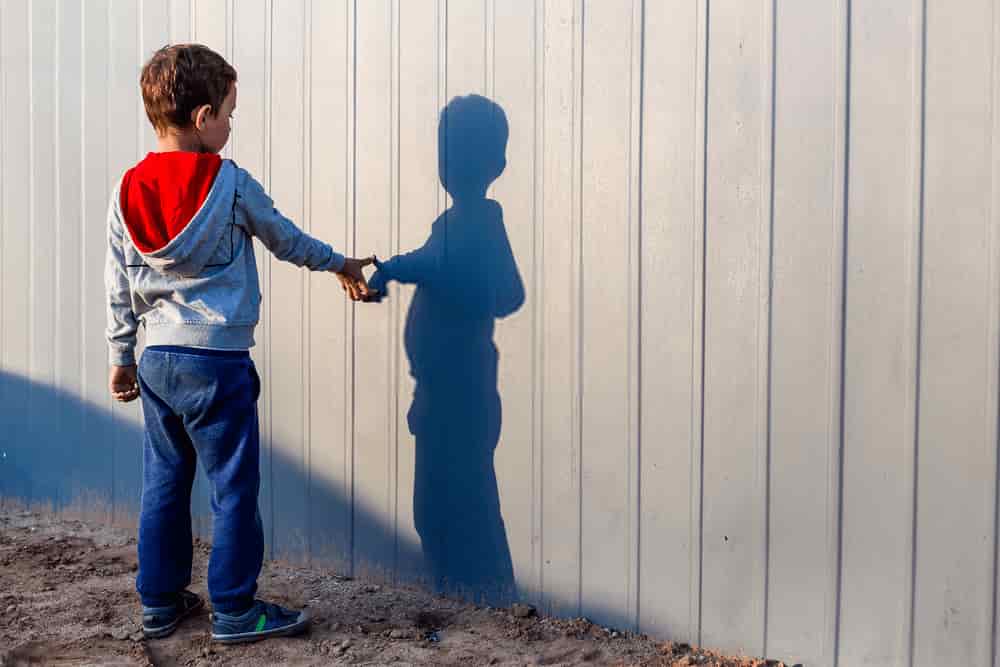Autism is a condition that results in impaired social skills, communication and abstract reasoning. This developmental disability can range greatly in terms of severity and impact, but always causes profound changes in the way that patients view the world around them and relate to others.
There is a spectrum of different conditions that could fall under the autistic umbrella, with autistic disorder being at the more extreme end. Asperger’s syndrome is considered a “less mild” form of autism, with patients tending to be better able to integrate into society and live normal lives. Rett’s disorder and childhood integrative disorder are less extreme forms of autism.
Autism can be difficult to diagnose in infants, as the signs and symptoms can be subtle and varied. However, understanding the condition and seeking help and support is critical for parents and the healthy development of their children. In this article, we will take a closer look at 12 different signs of autism that you might be able to spot. If you notice any of these and feel you have cause for concern, be sure to speak with your family health care.
Our kids’ future is important, so it’s crucial to watch out for anything that could hurt them. Discover the 12 signs on the next page to help you eliminate any risks.
1. Deficits in Social-Emotional Reciprocity
People with autism can have difficulty perceiving the world in the same way as typical people. Some might find things that are considered boring to be funny. The same is also true for things that are usually considered interesting.
Kids can be so hard to figure out. They don’t always show their emotions the way adults do, and they may not have a complete understanding of other people’s emotions. When faced with a stranger, most children will either smile or cry. It’s natural for them to have this reaction, as it’s a milestone in their development. This doesn’t necessarily mean that they like that person, though. Evolutionary instinct is at play here.
2. Lack Of Eye Contact
Eye contact communicates an interest in the other person. It’s a way to signal that we are listening and engaged in the conversation. Some people need eye contact to feel engaged or connected. This might be normal for some people, but it can be overcome with help from a trained therapist. Some people are hesitant to make eye contact because they are nervous or lack self-confidence. This can make it difficult to establish eye contact.
People with autism can have difficulty looking someone in the eye and engaging in social interactions. This is because autism is characterized by a lack of eye contact. This is not a lack of confidence, but rather a characteristic of their condition.
3. Poor Adjustment To Social Context
Many of us don’t give social context any thought–until we do. Once we start thinking about it, we realize how important it is to know how to interact with others in a way that builds relationships or leads to opportunities. Understanding social context is more important now than ever before.
Sarcasm can be difficult for people with Asperger’s and autism to understand. Individuals with the developmental disorder may have difficulty picking up on sarcasm and puns, and may need some help to understand jokes. For example, they may find it difficult to understand phrases like “break a leg” or may need someone to explain it to them.
4. Repetitive Behaviors
Autistic children have a range of symptoms, one of which is repetitive behaviors. Autism spectrum disorder is a serious condition that can affect a child at any stage of development. An autistic child may repeat certain behaviors, such as repetitive movements or vocalizations.
To give you an idea of how this sign might manifest, autistic might repeat words or phrases over and over in conversation, as well as their favorite routines.
5. Fixed Routines
People with autism are often more sensitive to the environment. For them, this can be challenging in many ways.
People with autism are known to have very specific routines. This means they will do anything to ensure they are followed. For example, people with autism might line up objects by color or organize shoes in a specific pattern. These routines are important for them because of their ASD, so people should respect that.
A habit that has become ingrained is hard to break. If a person with autism cannot complete their routine as they usually do, they can become irritated and even angry.
6. Fixed Interests
Those changes in interests you’re noticing in your child? Experts say that’s just a symptom of autism, and it’s not worrisome. It’s not uncommon and many people go through it. It’s very normal and there’s nothing to worry about.
Autism spectrum disorders (ASD) are a collection of conditions that can affect people with intellectual disabilities and range from mild to severe. People with ASD may become fixated on a single subject and become obsessed — this fixation can interfere with daily life and cause problems.
7. Abnormal Response To Sensory Stimuli
It’s not uncommon for different people to interpret the same sensory stimulus differently. For instance, one person might process information better when they’re reading, while another might need to hear it. This is completely natural and nothing to worry about.
It can happen that an individual with Autism Spectrum Disorder (ASD) will have difficulties in differentiating sounds, and may also experience certain sounds as more meaningful than others. Some cases of ASD can cause an overreaction to certain noises or sounds, while others can cause an under reaction.
8. Issues With Non-Verbal Communication
Communication is never complete without non-verbal cues. Non-verbal communication provides the tone of conversations, adds context in speeches, and further clarifies the words the speaker says in order to make them understood.
A person with ASD will have difficulty expressing their thoughts and feelings in conversation. The most common sign of ASD is a lack of eye contact, but the absence of gestures, especially gestures that communicate non-verbally, may also indicate that a person with autism spectrum disorder has difficulty expressing his ideas and feelings during a conversation.
9. Delayed Language
Developmental milestones are an important aspect of a child’s life. However, it can be difficult to recall the exact moment that they started crawling or walking. The point of developmental milestones is to provide guidelines by statistical averages, rather than pinpointing the exact moment. This is because milestones are not always accurate. It’s pretty common for children to start walking around 1-year-old. It may be earlier or later for your child, but it doesn’t mean that it’s strange or wrong if they start walking before or after this age.
Children with ASD (Autism Spectrum Disorder) may not be interested in the same things as most children. They might not like hugs or smiles. They need to be stimulated differently, or they will behave in an undesirable manner. Typical things that work for other kids might not work for them; they need to be handled differently to reward them for positive behavior.
Kids with Autism Spectrum Disorder (ASD) often struggle with speech and language skills. The reason for this is that they may not be getting the proper reinforcement.
10. Odd Play
According to the psychology of play, kids play in many ways throughout their childhood. From 1 to 3, they will mostly be playing by themselves with their own toys. At age 4, kids may start playing with others and get involved in group play. At age 5, kids will start playing with other kids, which is called “peer-to-peer play”.
Kids with autism spectrum disorder will each have different play styles. Some may be obsessed with one toy component to the point where they are not interested in playing with the whole toy.
11. No Back and Forth
Your children might not be able to carry on long conversations with you just yet, but they will start to respond to your facial expressions and sounds. often they will mimic you in response, a result of mirror neurons and one way that learning occurs.
However, if your child does not appear to smile back, to mimic your body language or respond in any way, then this might be a sign that they are not interested in socializing.
This behaviour should start manifesting around the age of 12 months.
12. Mood Swings
Many children with autism spectrum disorder find it difficult to understand their own emotions and the emotions of others.
This can result in mood swings that are beyond what is normal for a child of their age, as well as a lack of understanding of how others work and an inability to communicate – things that can be highly frustrating for a young child.
If your child is often defiant or has trouble getting along with others, it might be a sign that they have a spectrum disorder.













